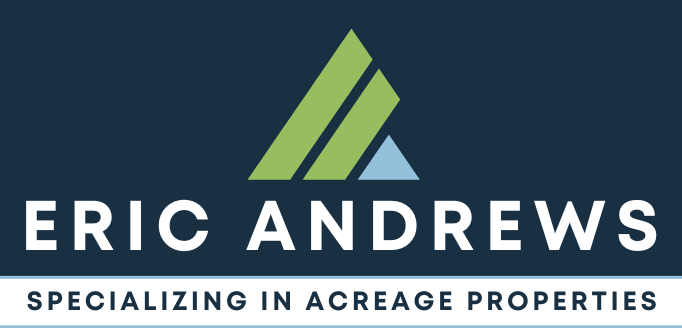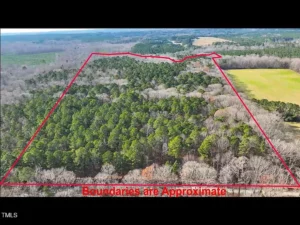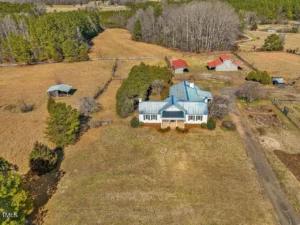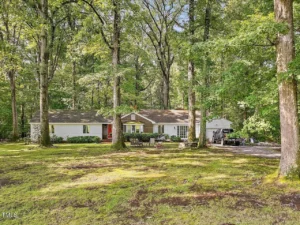Accredited Land Consultant (ALC) Eric Andrews tells us what land is worth in Chatham County and how he comes up with ways to sell the land. He has sold landlocked land in Pittsboro, Siler City, and many other areas. In some cases, the land is best sold or split up and sold to people with adjoining properties.
Speaker 1: What is landlocked land worth in Chatham County?
Speaker 2: Almost nothing. I mean, it greatly diminishes the value. You’re asking the buyer to cure a problem that you weren’t able to. So, and let me be clear about what we’re talking about. We’re not talking about land, that doesn’t have public road frontage, and it has like a private road easement to it. We’re talking about landlocked land. We’re talking about a piece of land that is completely surrounded by other pieces of land and there’s no current road or deeded access to that land. So it’s truly landlocked. If that’s the case. It’s unmarketable, I can’t sell it for you.
It so greatly diminishes the value of the property we consider it unmarketable. So if a piece of land would normally be worth $500,000 and it were landlocked, we might actually be lucky to get $50,000 to a $100,000 for it. It just, it so totally destroys the value. And what we’re asking the buyer to do is they have to be a cash buyer and they have to be willing to go out there and cure the situation that encumbers your land right now. So it greatly diminishes the value. Now, having said that, there have been times where I’ve listed a piece of landlocked land and then I’ve contacted all the adjoiners. And I said, “Hey, we’ve already been through this. We know you’re not going to give us an easement or access or whatever, but we’re going to sell it to someone. Would you like to buy this 20 acres that adjoins you? Or would you like to split it with your neighbor? 10 acres and 10 acres?”
And so it has a value to adjoiners, but not necessarily to the general public. The other thing that we have with it’s a little bit of a gray area is we might have a piece of land, 40 acres in the middle of nowhere, and it has a road to it. It’s just not an acknowledged deeded easement. And so we call that a prescriptive easement it’s been in existence for so long that even though it’s not deeded, no one can really stop you from entering the property.
Speaker 1: How long is it? Like a seven year?
Speaker 2: 20 years open and notorious though. So if you sneak a road through and don’t tell anybody, and they don’t know about it, but if everybody knows about the road and they’re like, “Yeah, this is the road that Will’s been using for 20 years.” You can’t say, “You know what, I’ve changed my mind and said, you can’t use that.” And that happens so often in rural properties because, Bob sells his land to his neighbor or they sell their land to their kids. And it’s all based on a handshake. And of course, this is the road that we’re going to use, and there’s no need to get lawyers involved and there’s no need to get surveyors involved. So, over time, 60, 80 years later, everybody’s like, wow, yeah, that’s the road we always use. But if it’s not deeded, it’s still… It’s not a good situation.
It’s still not good clean title. And you’re not likely to be able to get a loan on it. And the county might not be cooperative as far as subdividing it. So, you find this nice 40 acres. You’re like, “Oh, I’m going to do 22 acre lots.” No, you’re not. You have access for that 40 acres, but you might not be able to convey that to 40 other people. And the county might not want you to use that cart to cart easement. The gold standard is a 60 foot deeded easement. If you have a piece of land that has a 60 foot deed easement, you can pretty much do whatever you need to do on that property, but truly landlocked land. We have an expression in real estate. “It is just holding the world together.”
